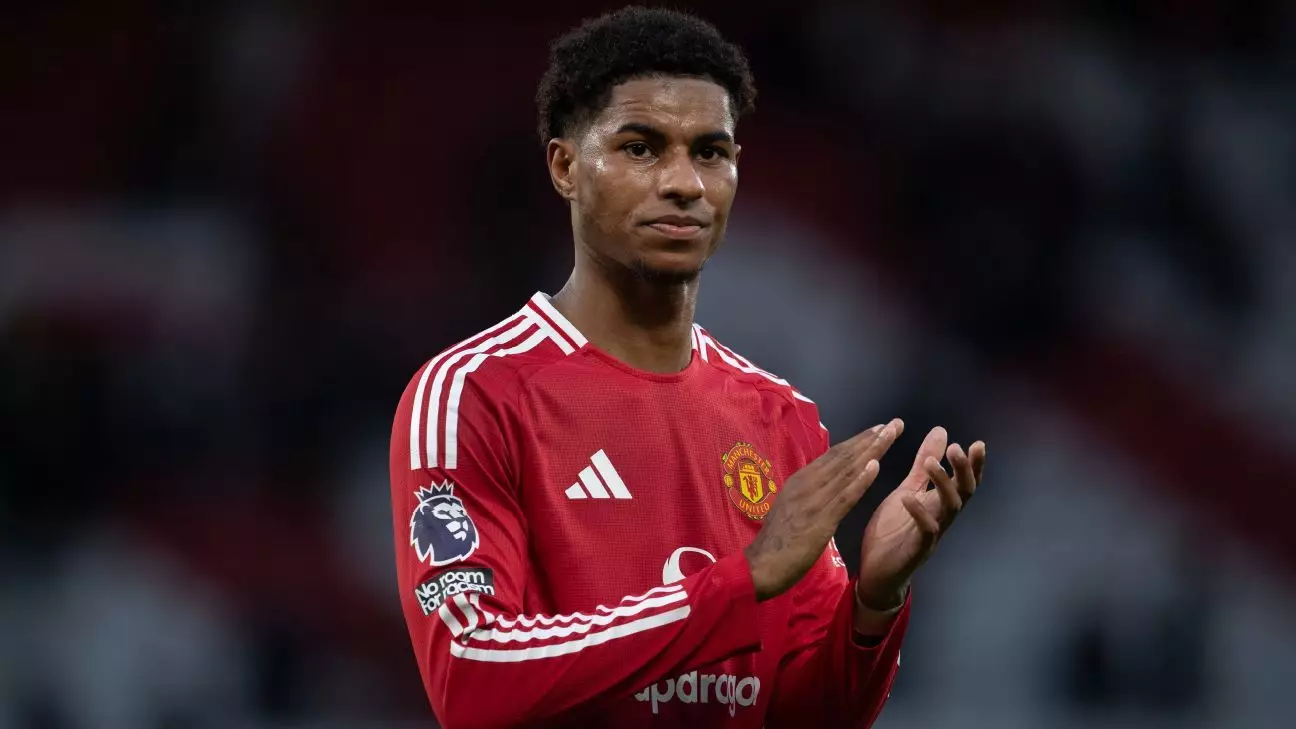After an extended absence, Marcus Rashford is making his return to the Manchester United squad, a development that brings both optimism and questions surrounding his future at the club. The 27-year-old forward had been sidelined for four consecutive matches, last contributing to United’s success in the Europa League with a crucial performance on December 12 against Viktoria Plzen. However, he faced scrutiny following his exclusion from the lineup for the high-profile Manchester derby against City just three days later. Head coach Ruben Amorim hinted that his omission was grounded in concerns over Rashford’s performance during training sessions, raising eyebrows about the player’s current form and commitment.
Rashford’s absence from the squad goes beyond mere tactical adjustments; in interviews post-exclusion, he expressed a desire for a “new challenge,” suggesting that his tenure at Manchester United may be nearing an end. While Amorim has publicly stated that he wishes for Rashford to remain, reports indicate that the club is contemplating potential offers as the January transfer window approaches. This situation creates a complex backdrop for Rashford’s return, with fans and analysts alike speculating whether this might be a final opportunity for the forward to demonstrate his value before an impending transfer.
The necessity for Rashford’s reintegration into the squad is underscored by the suspensions of key players Bruno Fernandes and Manuel Ugarte due to disciplinary actions. Fernandes faced a red card in a recent outing against Wolves, while Ugarte accumulated his fifth yellow card of the season. This situation compels Amorim to reconsider his selections, prompting the reintroduction of Rashford into a squad that is now in critical need of experienced players. The challenge ahead—clashing with Newcastle at Old Trafford—demands resiliency and performance under pressure, especially given the context of recent subpar results.
For Rashford, this match holds significant implications. It’s an opportunity not just to reclaim his status within the starting lineup but also to prove to the management, supporters, and himself that he is still a vital asset for Manchester United. Given the tournament stakes and a tepid performance against Wolves, he must seize this chance. The support of the fans might play a crucial role in bolstering his confidence, as a strong showing could either initiate a revival or serve as a poignant reminder of a once-promising career that may be veering off course.
Ultimately, Rashford’s return encapsulates a broader narrative of uncertainty enveloping Manchester United. The decisions made in the coming weeks—regarding player performance, potential transfer dealings, and team dynamics—could determine the trajectory of the club moving forward. Should Rashford rise to the occasion and deliver, it might alter the perception of his commitment and resilience, potentially reshaping both his legacy at the club and Manchester United’s immediate future.

